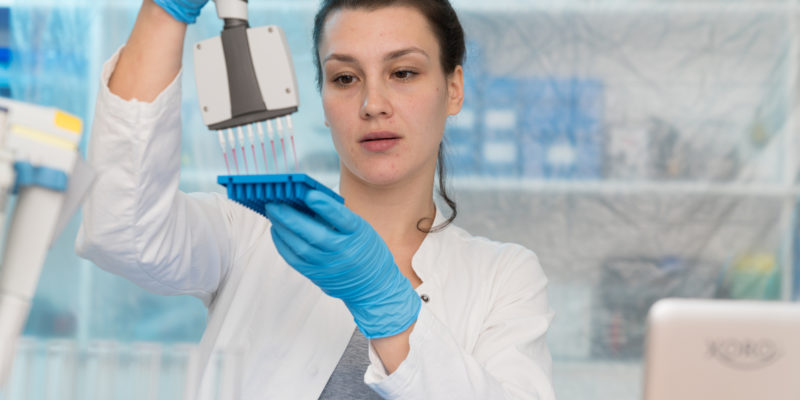Researchers in the US have made a breakthrough in immunotherapy for cancer. The team at the Icahn School of Medicine at Mount Sinai The Tisch Cancer Institute have developed a vaccine that can teach a patient’s immune system to kill cancer in the body.
Pharmaceutical Technology reported on the innovation. The immunotherapy is injected directly into a tumour cell, from where it begins targeting cancer.
Called the in situ vaccine, this new treatment is comprised of two immune stimulants. The news provider explained that one recruits dendritic cells, a particular type of immune cell. These are then activated by the second stimulant, which directs T cells to attack cancer cells, while leaving non-cancer cells unharmed.
The vaccine works because it enables immune cells to identify the characteristics present in tumour cells, which means that the immune system is able to find and destroy cancer throughout the body, not only where it’s initially administered.
According to the website, the vaccine “is said to turn the tumours into cancer vaccine factories”.
After showing promise in clinical trials in mice, the researchers tested their vaccine on 11 patients with advanced-stage lymphoma. They recently published their findings in Nature Medicine journal, revealing that all the patients experienced full remission, ranging from months to years.
Due to the positive results seen so far, they are now running trials with patients suffering from breast, head and neck cancer. The aim of these trials is to see how the vaccine works alongside checkpoint blockade drugs.
Speaking to the news provider, Josh Brody, director of the lymphoma immunotherapy program at Icahn School of Medicine at Mount Sinai The Tisch Cancer Institute, said: “The in situ vaccine approach has broad implications for multiple types of cancer. This method could also increase the success of other immunotherapies such as checkpoint blockade.”
This isn’t the only new cancer vaccine to show promise in recent weeks. Earlier this month, researchers at Weill Cornell Medicine in New York reported that they may be able to develop a preventative vaccine for people with Lynch syndrome.
Lynch syndrome is a genetic condition and those who suffer from it are 70 to 80 per cent more at risk of developing colorectal cancer than those without the condition. They are also at greater risk of developing other forms of gastrointestinal cancer.
It’s estimated that 1.17 million Americans have Lynch syndrome, so a vaccine that could prevent them from developing cancer could have a wide-reaching impact.
The research in the US has developed a vaccine that’s been effective at destroying the mutated cells made by the Lynch DNA in mice. The hope is that if this also proves successful in humans, it could be used to prevent people with Lynch syndrome from developing cancer in the first place.
Dr Steven Lipkin, lead author of the study at Weill Cornell Medicine, told the Daily Mail that they discovered combining the vaccine with Naproxen, an anti-inflammatory drug, yielded the best results.
He added that they are hopeful that this treatment could be life-changing for those with Lynch syndrome. “It could cure them over time. If started preventatively, they can live to be a normal age for those without Lynch syndrome,” Dr Lipkin stated.
If you need pharma packaging solutions, get in touch with us today.

